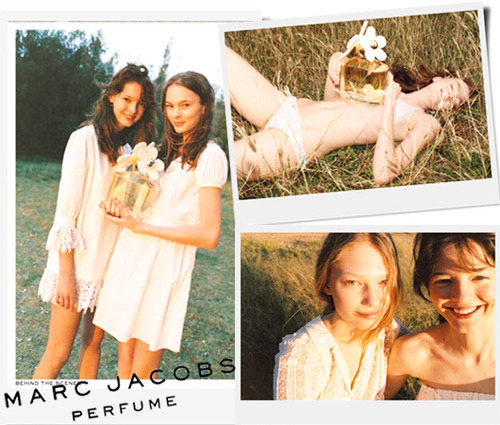By Alicia Fiorletta, Senior Editor

Last week, news broke that Marc Jacobs would be celebrating the anniversary of its Daisy fragrance – and the kick-off of New York Fashion Week – by opening a pop-up store.
The store, which will be open in SoHo, New York City, Feb. 7-9, 2014, will be packed to the brim with perfume. Consumers also will have access to complimentary food and drinks, get some entertainment from an in-store DJ and have the opportunity to participate in contests for free products…even Marc Jacobs handbags, which can rack up a price tag of more than $500.
Now, the pop-up concept is nothing new, so you may be asking: What makes this specific example stand out from all the others?
What I find especially innovative is that Marc Jacobs is allowing consumers to turn their social posts on Facebook, Twitter and Instagram to cold hard cash! That’s right, instead of dropping dollar bills on products at the store, social posts will turn into digital currency. According to new reports, consumers will only be able to buy fragrance samples with their digital currency
I’ve never seen a social commerce example of this caliber before. But as of now, some of the details aren’t exactly clear. The only known “pre-requisite” is that all social posts include the event hash tag #MJDaisyChain.
As I was digging through the web to get more details, it seemed as though there were a few minor details left out of the story. A few questions still flurrying through my head include:
- Is one kind of social post more valuable than another?
- Can a person collect more “money” if they have more followers?
- Do consumers get rewarded if followers share their updates?
Greg Girard of IDC Retail Insights brought up an interesting point during a recent discussion with me: “It would be cool if you knew the Klout score of that particular user, and then determine the discount based on the overall influence of the hash tag.”
Because this social currency concept is still so new, I’m sure there will be many ways brands reimagine or refine the concept so they get more value out of the initiative overall.
But in my opinion, the fact that Marc Jacobs is turning a brick-and-mortar concept into a viral, social event is what makes the pop-up so fun and innovative.
Personally, I’ve always found the luxury space to be interesting. Obviously, depending on the history and target audience, a brand can have a lot of fun with its marketing strategies. Marc Jacobs has always been a brand to go outside the box, largely thanks to its eccentric head designer.
I reached out to a few close contacts to gauge their thoughts on the social currency trend, and Laura Davis-Taylor, one of RTP’s frequent contributors and SVP, Managing Director of ShopWork, BBDO and Proximity’s shopper marketing practice, had a few very interesting points to share:
“I think this is brilliant,” Davis-Taylor said. “This whole social currency concept is about people’s passion for brands. Their love and emotion towards it. And frankly, it’s difficult for these manufacturers to ignite that without being where they are and giving consumers an outlet to fuel the fire.”
Davis-Taylor added that she was keen towards the idea because “it creates an experience but also gives people an outlet to talk about [the brand], and create more passion for it. Frankly, the originality of it is what’s so beautiful. Because if everyone started doing this, it would be a copy-cat thing that wouldn’t be unique anymore. It’s a great example of saying ‘Hey, take a look at what’s happening with life, the world and trends, and how people talk about their love for brands. See where consumers are and give them a reason to create their own stories around the brand."
This form of advocacy marketing and word-of-mouth, in my opinion, is becoming more valuable, especially as consumers rely more on peer and tastemaker feedback than branded campaigns and the opinions of fashion editors.
We’re going through a very exciting time for retail, especially in the luxury space. It will be interesting to see how the social currency trend evolves, and if it will truly take shape across categories.
What are your thoughts on the social currency trend? Think it will stick? Share your thoughts in the comments below or reach out to us on Twitter.






